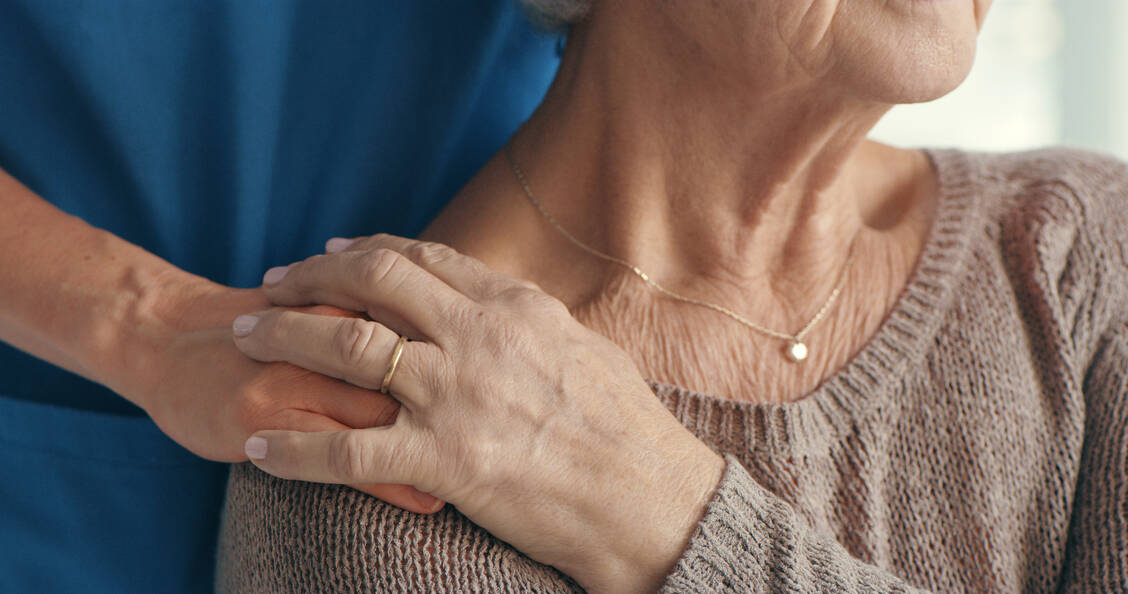Dying at home: Accompanying until the end of life



Precious time: Accompanying a loved one until death can be very enriching. / © Getty Images/Marco VDM
Most people—up to 80 percent, depending on the survey—wish to die at home. Being able to spend the last days or weeks surrounded by loved ones, rather than in the impersonal atmosphere of a hospital, can help bring life to a dignified close.
Even when death is already imminent, life often still holds happy and intimate moments. Not only for the dying person themselves: accompanying a loved one to the end of life is often enriching for family and friends, despite the sometimes significant physical and psychological challenges. It allows them to grieve together and makes it easier to accept the approaching end. Often, in the face of death, a previously unknown closeness develops, allowing both parties to say a peaceful goodbye.
However, the reality is often different. In Germany, approximately one in two people die in a hospital, and one in three in a nursing home. This cannot always be avoided—for example, after a serious accident, heart attack, or stroke.
However, in a palliative care situation, when the health condition is clearly life-limiting, most people can be enabled to die in a familiar environment: "If all relevant people are willing to support this goal, dying at home is only possible in a few exceptional situations," says Gregor Sattelberger, head of the outpatient hospice and palliative care team at the Christophorus Hospice Association in Munich. "Even severe pain and other serious symptoms can almost always be managed well." Above all, it is important to establish a sustainable network in a timely manner.
Sattelberger advocates for engaging an outpatient hospice service as early as possible. There are more than 1,500 of these throughout Germany. Approximately 100 regional hospice and palliative care networks bring together various facilities and services that can facilitate the care of the dying and those with life-shortening illnesses.
It's a relief for both the family and the person affected when they know what to expect – and what options are available to cope. However, both sides often shy away from discussing dying out of consideration for the other. Unjustifiably, as the long-time palliative care nurse knows from experience: "Talking about it is a relief. Studies show that seriously ill people benefit from early palliative counseling." This is helpful even long before the actual dying phase.

pharmazeutische-zeitung




